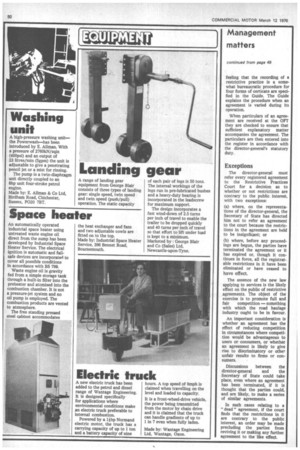Exceptions
Page 72

If you've noticed an error in this article please click here to report it so we can fix it.
The director-general must refer every registered agreement to the Restrictive Practices Court for a decision as to whether or not restrictions are contrary to the public interest, with two exceptions: (a) where, on the representations of the director-general, the Secretary of State has directed him not to refer an agreement to the court because the restrictions in the agreement are held to be insignficant; or (b) where, before any proceedings are begun, the parties have terminated the agreement or it has expired or, though it continues in force, all the registratable restrictions in it have been eliminated or have ceased to have effect.
The essence of the new law applying to services is the likely effect on the public of restrictive agreements. The object of the exercise is to promote full and fair competition — something with which the road haulage industry ought to be in favour.
An important consideration is whether an agreement has the effect of reducing competition in circumstances where competition would be advantageous to users or consumers, or whether an agreement is likely to give rise to discriminatory or other unfair results to firms or consumers.
Discussions between the director-general and the Secretary of State could take place, even where an agreement has been terminated, if it is thought that the parties could, and are likely, to make a series of similar agreements.
In such cases relating to a " dead " agreement, if the court finds that the restrictions in it are contrary to the public interest, an order may be made precluding the parties from reviving it or making any further agreement to the like effect.
















































































































